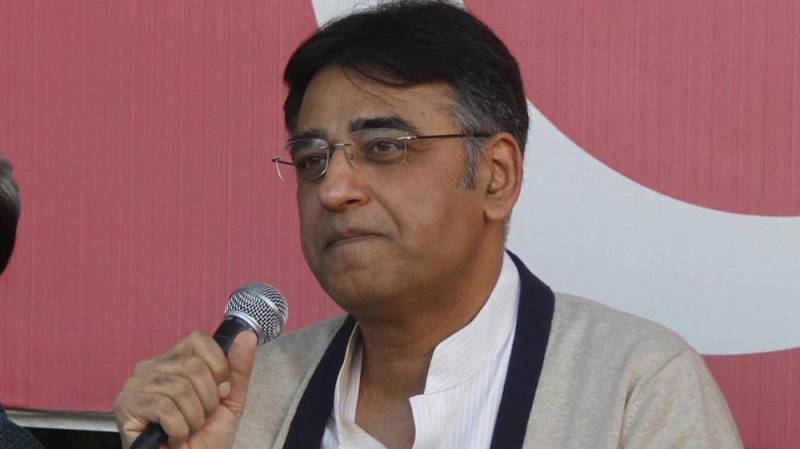Finance Minister designate Asad Umer unveils PTI government 100 days economic plan
Shares

ISLAMABAD - Asad Umar, the expected finance minister of Pakistan, said in an interview to Bloomberg that Pakistan may need more than $12 billion to halt an impending financial crisis and a decision on where to source the funds will have to be made within six weeks.
He said the nation’s financing gap is estimated at somewhere between $10 billion to $12 billion, though the new government would need a bit extra so it doesn’t “live on the edge,” he said in an interview on Thursday.
Umar also promised to make all Chinese agreements public after criticism of Beijing’s opaque Belt and Road loan terms. “The decision needs to be taken in the next six weeks, the further you go forward the more difficult, the more expensive the options become,” Umar said in Islamabad. ------------------------------
Pakistan could turn to the International Monetary Fund, friendly countries and issue diaspora bonds to bolster the nation’s depleting reserves, he said.
“One friendly advice to the Americans, we’ll worry about our Chinese debt, but I think they better handle their own Chinese debt first,” he added.
Umar said he would bring more transparency to the $60 billion Belt and Road infrastructure projects in Pakistan and hit back at Pompeo’s comments.
Many investors and analysts now see a bailout from China or the IMF as inevitable. The central bank has raised interest rates, the current-account gap is widening and foreign-exchange reserves are dropping.
Moody’s Investors Service downgraded the nation’s outlook to negative last month and the nation’s currency has been devalued four times since December.
During his interview with the Financial Times, Umar revealed that during the first 100 days of the new government, all state-owned companies would be transferred into a special wealth fund to remove them from political interference.
The country might have to consider a mass privatization drive as it seeks to obtain the necessary funds to pull the nation out of the economic crises that the nation seems to be lingering around. The creation of this fund may help persuade the IMF to agree to a favorable deal for the country, he hopes.
The likely finance minister went on to say that the creation of this special wealth fund would be the first step towards privatization by the new government.
About 200 companies would be effectively removed from government control and placed in this wealth fund, which shall be led by people from the private sector, and managed by the government from an arm’s length.
The fund’s job would be to cut the losses of the companies in that fund and reduce their debts.
He mentioned that the government will also have to take over some, if not all, of PIA’s 367 billion rupee debt ($2.1 billion) to start the carrier’s turnaround.
The last time Pakistan went to the IMF, Islamabad agreed to earmark 68 companies for privatization, including PIA, in return for a loan of $6.7bn. But the process stalled after the government sold stakes in a few profitmaking companies.
